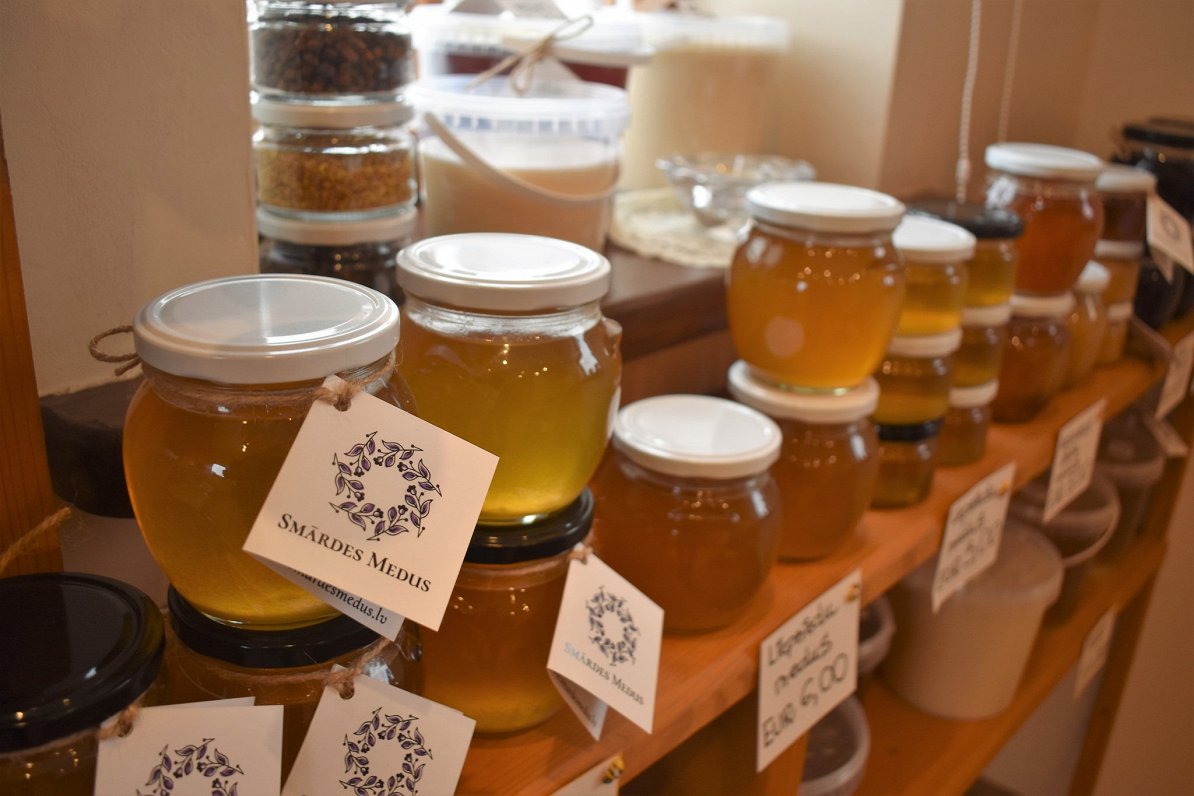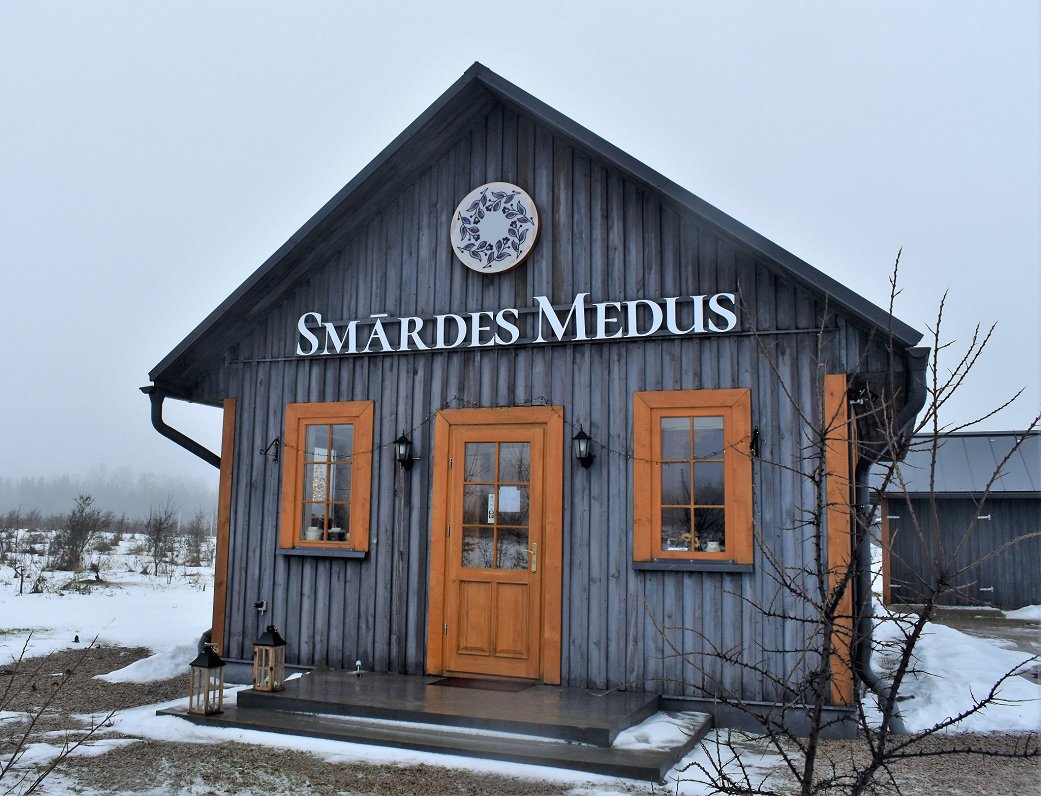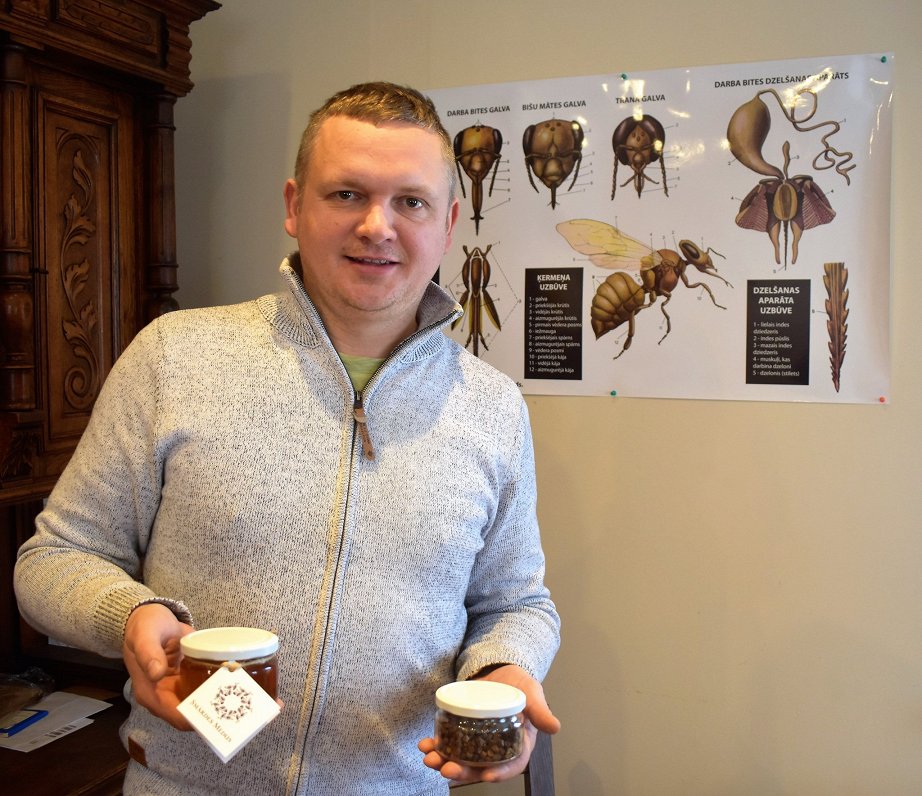Once upon a time, Edgars and Krista Šneiders enjoyed a cosmopolitan life, splitting their time between Rīga and Tallinn running tourism businesses. But, longing for a bucolic spot to raise their three kids, in 2016 they moved to a run-down old farmhouse on 3 hectares of land in Smārde, 50 km west of Rīga.
Over the next few years they established a cosy home there, as well as planting sea buckthorn bushes to make super-healthy juice. A little later, Edgars attended courses run by the Latvian Beekeepers’ Association (winning the title of Best New Beekeeper in 2018), and he now devotes his energies to harvesting honey, which is marketed under the brand “Smārdes medus” (Honey from Smārde).
Today, the family manages 100 beehives, all handcrafted by Edgars. He collects delicious treats made from buckwheat, heather and invasive Canadian goldenrod (he is also experimenting with honey obtained from hogweed, the bête noire of Latvian farmers). Pollen, propolis and beeswax products have also found eager customers.

Smārde is surrounded on three sides by the Kēmeri National Park, and Edgars makes the most of this pristine setting by treating each type of honey with reverence. Unlike larger commercial operations, he doesn’t simply mix all the honey into a homogenous mass at the end of the season.
“People often ask why we have such tasty honey,” says Edgars. “And I tell them its because straight after the apple or lime trees finish flowering, I go out and gather the honey. So, each batch is different and delicious.”
On the property, a traditional-style cabin houses as a shop selling honey and sea buckthorn juice to visitors (open weekend afternoons and other days by appointment). The family also distribute through several health food stores closer to Rīga and deliver online orders to Ominva parcel machines.
In summer, they host corporate and children’s events, and with Smārde just a short drive from Jūrmala, Edgars hopes to attract day trippers from the resort to learn about bees. He engagingly reels off surprising facts about these complex creatures. Did you know they have five eyes? Or that worker bees have tiny spoons at the ends of their long tongues to reach nectar inside flowers? Or that scout bees perform a dance indicating the precise angle to fly to reach good pollen?
Come winter, Edgars travels to Germany to earn money driving trucks, leaving Krista in charge of the store. On these trips, he has noticed that most of the honey in Western Europe is runny, poor-quality stuff (with the only real honey being available in Russian grocery stores).
Edgars thinks this is partly down to EU regulations, which have for years allowed inferior Chinese honey mixed with a small amount of local honey to be sold as a European product. But he also believes that more northerly latitudes, including Latvia, simply have better conditions for obtaining honey. Here, the short flowering season prompts plants to generate nectar more intensively in order to attract pollinators, resulting in the honey being tastier and more nutritious.

According to Edgars, Latvia has more forest coverage and less pesticide usage than most other EU countries. Furthermore, Latvian hives are smaller and more spread out than the industrial-scale beekeeping practiced elsewhere, like notorious plantations in California where truckloads of bees are brought in to pollinate almonds. This shields Latvian bee colonies from pests and viruses which are decimating bee populations around the world.
Due to what Edgars regards as petty, expensive rules, “Smārdes medus” hasn’t obtained organic certification. But even without the label, he insists that his honey is healthier and more natural than your average store-bought goods. And he thinks that Latvia should use all its advantages to market its products as “Nordic Honey.”
“Latvian honey is very environmentally friendly and competitive, but if we want to sell it, we have to educate the customers about it,” he says.
Like bee colonies, the economic ecosystem needs careful nurturing. Covid-era bans on fairs, even ones held even in the fresh air, have hurt family-owned food makers, and increasingly stricter tax laws don’t help either. Edgars says the government should be more supportive to small businesses.
But this doesn’t sour his passion for what he does.
“Small entrepreneurs are a tough bunch, and if you slam the door in our faces, we’ll find a way to climb in through the window,” says Edgars. “We never quit, and we will always find a way to survive and make a living.”

































